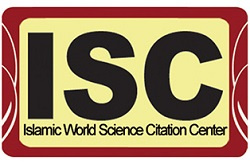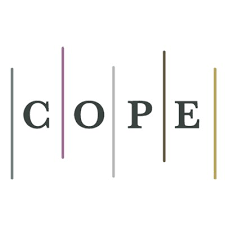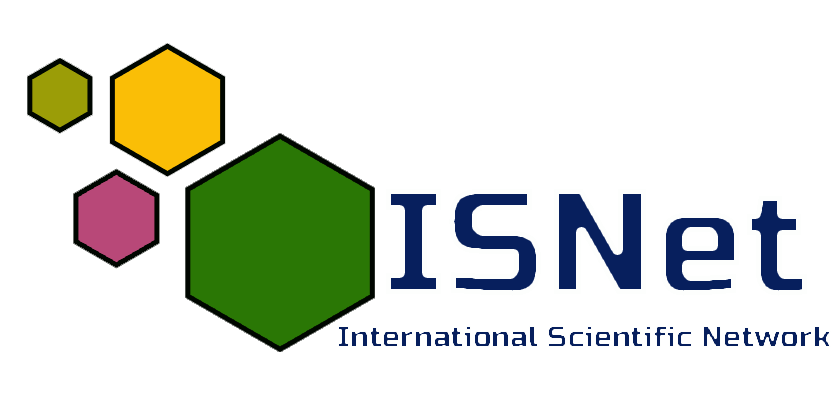Fuzzy clustering of investment projects in Tabriz Municipality Waste Management Organization with ecological approach
DOI:
https://doi.org/10.52547/ijimes.1.2.28DOR:
https://dorl.net/dor/20.1001.1.27832678.2021.1.2.3.5Keywords:
Fuzzy Clustering Method (FCM), Investment, Ecology, Tabriz Municipality Waste Management organization.Abstract
Purpose: Clustering of investment projects is an essential step in the process of planning the investment projects of organizations. Choosing the right project portfolio has a direct impact on the profitability and other strategic goals of organizations. Factors affecting the clustering of investment projects are many and the use of traditional methods alone cannot be useful, so it is necessary to use a suitable model for clustering projects and investment plans. The purpose of this research is to analysis investment projects of the Tabriz Municipality Waste Management Organization.
Methodology: This research is a descriptive - survey method in terms of its objectives. The method used is Fuzzy clustering (FCM), in which the first large investment projects in waste management using the background of participants in research and investment clusters(3 clusters) using the FCM clustering approach is determined, then the priority of the appropriate investment methods (from 6 methods) of each project was obtained using expert judgment and other aspects. Due to the need for planning and clustering of investment projects, using the opinion of experts (10 experts), the importance of projects with ecological perspective was examined.
Findings: The result of the research has been that Recycled tire recycling, Glass recycling, Electronic waste recycling, Plastic recycling and Construction project of a specialized recycling town are important projects that located in the first cluster and under normal circumstances, three investment methods, civil partnership agreements, BOT, and partnership contracts (property from the municipality) can be used for them.
Originality/Value: Tabriz Municipality Waste Management is an important and influential organization in the activities of the city, in which the investment methods in its projects are mostly based on common contracts and are performed in the same way for all projects. This research offers new methods for projects and their diversity according to clustering technique.
Downloads
References
Zhang, L., Jin, Z., Zheng, Y., & Jiang, R. (2019). Mechanical product ecological design knowledge reduction based on rough set. Procedia CIRP, 80, 33-38, DOI: 10.1016/j.procir.2019.01.030
Li, A., & Zheng, H. (2021). Energy security and sustainable design of urban systems based on ecological network analysis. Ecological Indicators, 129, 107903, https://doi.org/10.1016/j.ecolind.2021.107903
Kumar, S. (Ed.). (2010). Waste management. BoD–Books on Demand.
Hoornweg, D., & Bhada-Tata, P. (2012). What a waste: a global review of solid waste management.
Byrne, J. A., & Houston, D. (2020). Urban ecology.
Ghosh, S. K. (Ed.). (2020). Urban Mining and Sustainable Waste Management. Springer Nature.
Sengupta, D., & Agrahari, S. (Eds.). (2017). Modelling trends in solid and hazardous waste management. Springer Singapore.
Gandy, M. (2014). Recycling and the politics of urban waste. Routledge.
Rogoff, M. J. (2013). Solid waste recycling and processing: planning of solid waste recycling facilities and programs. Elsevier.
Nahaei, V. S., & Bahrami, M. (2021). Uncertainty analysis of business components in Iran with fuzzy systems: By comparing hypermarkets and Net markets. International Journal of Innovation in Management, Economics and Social Sciences, 1(1), 45-55, https://doi.org/10.52547/ijimes.1.1.45
Samadi parviznejad, P., & Naser Akhavan, A. (2021). Impact of the Tourism Industry Scenarios in Urban Economy: (Case Study Tabriz): Impact of the Tourism Industry Scenarios. International Journal of Innovation in Management, Economics and Social Sciences, 1(1), 1–15, https://doi.org/10.52547/ijimes.1.1.1
Bahers, J. B., & Kim, J. (2018). Regional approach of waste electrical and electronic equipment (WEEE) management in France. Resources, Conservation and Recycling, 129, 45-55, https://doi.org/10.1016/j.resconrec.2017.10.016
Huang, B., Wang, X., Kua, H., Geng, Y., Bleischwitz, R., & Ren, J. (2018). Construction and demolition waste management in China through the 3R principle. Resources, Conservation and Recycling, 129, 36-44, https://doi.org/10.1016/j.resconrec.2017.09.029
Schewe, F., & Vollrath, M. (2020). Ecological interface design effectively reduces cognitive workload–The example of HMIs for speed control. Transportation research part F: traffic psychology and behaviour, 72, 155-170, https://doi.org/10.1016/j.trf.2020.05.009
Jafari, A. J., Latifi, P., Kazemi, Z., Kazemi, Z., Morovati, M., Farzadkia, M., & Torkashvand, J. (2021). Development a new index for littered waste assessment in different environments: A study on coastal and urban areas of northern Iran (Caspian Sea). Marine Pollution Bulletin, 171, 112684, https://doi.org/10.1016/j.marpolbul.2021.112684
Zand, A. D., & Heir, A. V. (2020). Emerging challenges in urban waste management in Tehran, Iran during the COVID-19 pandemic. Resources, Conservation, and Recycling, 162, 105051, DOI: 10.1016/j.resconrec.2020.105051
Fasihi, H., & Parizadi, T. (2021). Analyzing household's environmental behavior on solid waste management and its relations with population and housing characteristics (The case: Amlash city, Iran). Journal of Environmental Management, 292, 112686, https://doi.org/10.1016/j.jenvman.2021.112686
Jomehpour, M., & Behzad, M. (2020). An investigation on shaping local waste management services based on public participation: A case study of Amol, Mazandaran Province, Iran. Environmental Development, 35, 100519, https://doi.org/10.1016/j.envdev.2020.100519
Fetanat, A., Mofid, H., Mehrannia, M., & Shafipour, G. (2019). Informing energy justice based decision-making framework for waste-to-energy technologies selection in sustainable waste management: a case of Iran. Journal of Cleaner Production, 228, 1377-1390, https://doi.org/10.1016/j.jclepro.2019.04.215
Zaeimi, M. B., & Rassafi, A. A. (2021). Designing an integrated municipal solid waste management system using a fuzzy chance-constrained programming model considering economic and environmental aspects under uncertainty. Waste Management, 125, 268-279, https://doi.org/10.1016/j.wasman.2021.02.047
Pouriani, S., Asadi-Gangraj, E., & Paydar, M. M. (2019). A robust bi-level optimization modelling approach for municipal solid waste management; a real case study of Iran. Journal of Cleaner Production, 240, 118125, https://doi.org/10.1016/j.jclepro.2019.118125
Tirkolaee, E. B., Abbasian, P., & Weber, G. W. (2021). Sustainable fuzzy multi-trip location-routing problem for medical waste management during the COVID-19 outbreak. Science of the Total Environment, 756, 143607, https://doi.org/10.1016/j.scitotenv.2020.143607
Mamashli, Z., Nayeri, S., Tavakkoli-Moghaddam, R., Sazvar, Z., & Javadian, N. (2021). Designing a sustainable–resilient disaster waste management system under hybrid uncertainty: A case study. Engineering Applications of Artificial Intelligence, 106, 104459, https://doi.org/10.1016/j.engappai.2021.104459
Falcone, P. M., & De Rosa, S. P. (2020). Use of fuzzy cognitive maps to develop policy strategies for the optimization of municipal waste management: A case study of the land of fires (Italy). Land Use Policy, 96, 104680, https://doi.org/10.1016/j.landusepol.2020.104680
Stefanović, G., Milutinović, B., Vučićević, B., Denčić-Mihajlov, K., & Turanjanin, V. (2016). A comparison of the analytic hierarchy process and the analysis and synthesis of parameters under information deficiency method for assessing the sustainability of waste management scenarios. Journal of cleaner production, 130, 155-165, https://doi.org/10.1016/j.jclepro.2015.12.050
Liu, Y., Kong, F., & Gonzalez, E. D. S. (2017). Dumping, waste management and ecological security: Evidence from England. Journal of Cleaner Production, 167, 1425-1437, https://doi.org/10.1016/j.jclepro.2016.12.097
Kirkman, R., & Voulvoulis, N. (2017). The role of public communication in decision making for waste management infrastructure. Journal of environmental management, 203, 640-647, https://doi.org/10.1016/j.jenvman.2016.06.002
Bezdek, J. C., Ehrlich, R., & Full, W. (1984). FCM: The fuzzy c-means clustering algorithm. Computers & geosciences, 10(2-3), 191-203, https://doi.org/10.1016/0098-3004(84)90020-7
Textor, A. R. (2002). American marriage in modernity: Cultural reproduction, relationality and dissidence. University of Michigan.
Gerhardt, D. R., & Thaw, D. (2020). Bot Contracts. Ariz. L. Rev., 62, 877.
Iyer, R., Pedrosa, L., Zaostrovnykh, A., Pirelli, S., Argyraki, K., & Candea, G. (2019). Performance contracts for software network functions. In 16th {USENIX} Symposium on Networked Systems Design and Implementation ({NSDI} 19) (pp. 517-530).
Gandomi, N., & Rezai, S. (2016). Considering of BOO Contract in project management & its role in developing of privatization. Journal of Management, Economics & Accounting, 7(4), 1-12, https://www.sid.ir/FileServer/SE/270E20160404.pdf
Ghahremani Nahr, J., & Bathaee, M. (2021). Design of a Humanitarian Logistics Network Considering the Purchase Contract. Journal of Decisions and Operations Research. DOI: 10.22105/DMOR.2021.270988.1311.
Published
How to Cite
Issue
Section
License
Copyright (c) 2021 Vahid Saeid Nahaei, Mohammadali Habibizad Novin, Mahdi Assadi Khaligh

This work is licensed under a Creative Commons Attribution 4.0 International License.












